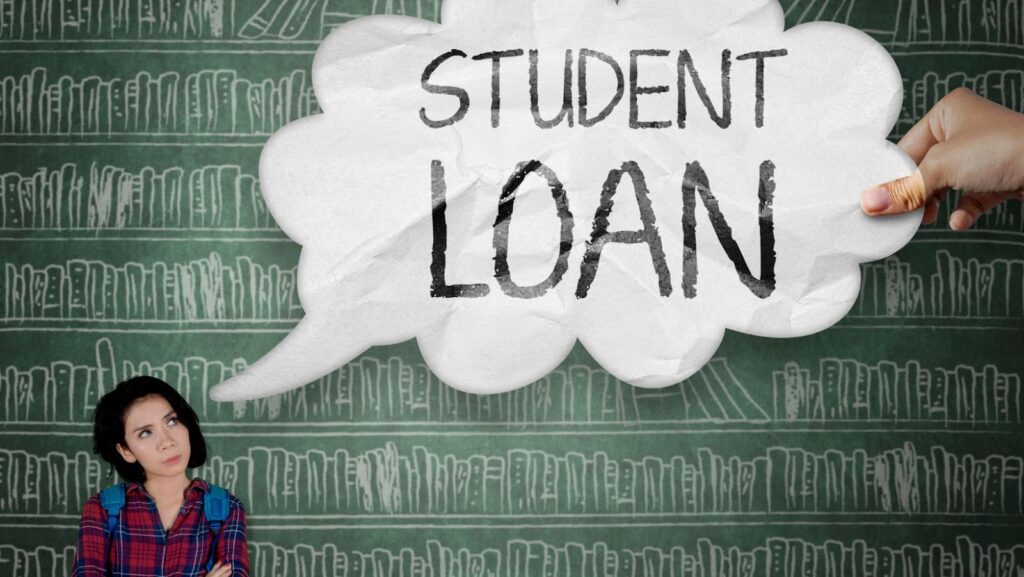
Are Student Loans Worth It? My Surprising Answer Will Shock You!
As a college graduate, the question of whether or not student loans are worth it still lingers in my mind. Many students take out loans to cover the high cost of tuition, with the hope that their investment will be worth it in the long run. However, it’s important to take a closer look at the true cost of education and what that means for one’s financial future.
On one hand, higher education is often seen as a ticket to a higher-paying career and a secure financial future. According to recent statistics, college graduates earn significantly more than those without a degree over their lifetimes. Moreover, certain careers require an advanced degree, making student loans a necessary investment in one’s future.
On the other hand, taking out large amounts of student loan debt can have significant consequences, particularly if a student is unable to find a job or earn enough to pay it back. With the average amount of student loan debt increasing every year, it’s important for students to carefully consider whether they can afford to take on this financial burden. So, are student loans worth it? The answer is not a simple yes or no, as ultimately, it depends on a variety of factors unique to each individual.
Are Student Loans Worth It
As someone who has personally taken out student loans, I understand the stress and anxiety that comes with financing a college education. Before making the decision to take on debt, it’s important to consider the costs associated with attending college.
First and foremost, there are tuition and fees. According to the College Board, the average cost of tuition and fees for the 2020-2021 school year was $10,560 for in-state students at public four-year institutions, $27,020 for out-of-state students at public four-year institutions, and $37,650 for students at private non-profit four-year institutions.
These costs have been steadily increasing over the years, making college more and more expensive.
However, tuition and fees aren’t the only costs students need to consider. There are also expenses like textbooks, housing, transportation, and food. These costs can add up quickly and increase the overall cost of college.
The Costs of Attending College
Additionally, there is the opportunity cost of attending college. This refers to the potential income that could be earned if a student chose to work instead of attending college. While this cost is difficult to quantify, it’s important to consider when making the decision to take out student loans.
When considering whether or not student loans are worth it, it’s important to weigh the costs and potential benefits. While taking on debt can be daunting, a college education can also lead to higher earning potential and greater job opportunities. It’s ultimately up to each individual to determine if the benefits outweigh the costs.
Overall, it’s important for students and their families to carefully consider the costs associated with attending college and the potential benefits before making the decision to take out student loans.
The Pros And Cons of Taking Out Student Loans
As someone who has experienced the benefits and drawbacks of taking out student loans, I can say that the decision to do so is not one to be taken lightly. Here are some pros and cons to consider when deciding whether getting a student loan is worth it:
Pros
– Access to education: Student loans can open doors to higher education that may not have been available otherwise. This education can lead to a better career and higher earning potential in the long run.
– Delay of payment: The repayment of federal student loans typically doesn’t begin until after graduation, giving students time to focus on their studies and job search instead of worrying about immediate repayment.
– No credit history required: Unlike many other loans, student loans don’t require a credit history to obtain. This can be helpful for those just starting to build credit.
– Possibility of loan forgiveness: Certain jobs and professions may qualify for loan forgiveness, which can relieve borrowers of significant debt.
Cons
– Amount of debt: Many students are faced with staggering amounts of debt after graduation, with some owing more than their initial loan amount due to interest. This can be overwhelming and may hinder other financial goals.
– Uncertainty of job market: Even with a higher education, there’s no guarantee of a well-paying job after graduation. This can make it difficult to repay loans in a timely manner, leading to more debt.
– Inability to discharge in bankruptcy: Unlike many other forms of debt, student loans cannot be discharged in bankruptcy. This means borrowers are responsible for paying them back, no matter what their financial situation may be.
– Interest rates: Depending on the type of loan and lender, interest rates can be high, making it difficult to pay off loans quickly and efficiently.
In conclusion, taking out student loans can be a valuable tool for accessing higher education and improving career prospects in the long run. However, the amount of debt, uncertainty of the job market, and other potential drawbacks should be carefully considered and weighed against the benefits before making a decision.
Are Student Loans worth it? A Look at The Numbers
When considering whether or not to take out a student loan, it’s important to weigh the costs and benefits. While the cost of higher education in the United States continues to rise, so does the average salary of college graduates. Here are some numbers to consider when thinking about whether student loans are worth it:
– The average debt for college graduates in 2021 is $38,792 (according to Student Loan Hero). This may seem like a daunting number, but it’s important to consider the earning potential that comes with a college degree.
– College graduates earn an average of $30,000 more per year than those with just a high school diploma (according to the Bureau of Labor Statistics). Over the course of a career, this can add up to hundreds of thousands of dollars.
Student Loan Interest Rates Vary, But Are Generally Lower Than Rates For Other Types of Loans
As of 2021, federal student loan rates range from 2.75% to 5.3% depending on the type of loan (according to the Department of Education).
There Are Options For Loan Repayment Assistance And Forgiveness Programs
Depending on your career path, you may be eligible for loan repayment assistance or forgiveness programs. For example, those who work in public service may qualify for Public Service Loan Forgiveness after making 120 qualifying payments.
Of course, it’s important to remember that taking out a student loan is a personal decision that should be made with careful consideration of your future financial goals. However, when looking at the numbers, it’s clear that for many, the benefits of a college education can outweigh the costs of student loans.








